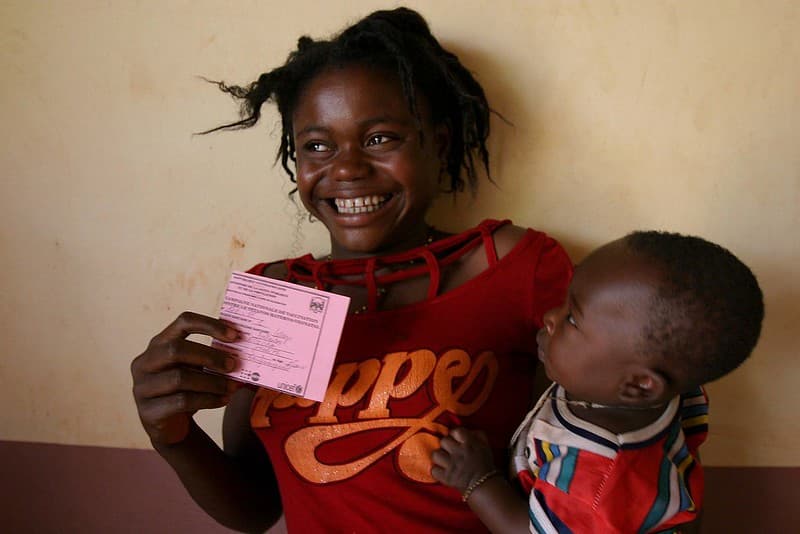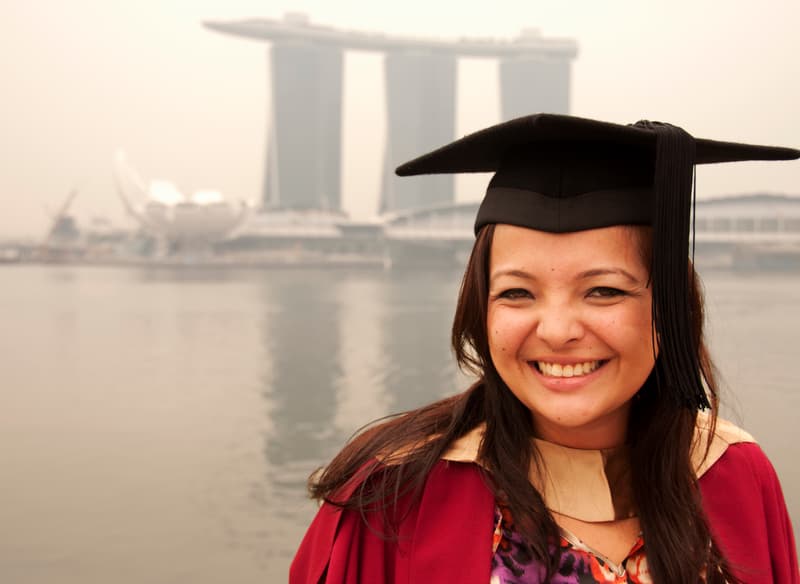Project Associate
Vienna
- Organization: UNIDO - United Nations Industrial Development Organization
- Location: Vienna
- Grade: Level not specified - Level not specified
-
Occupational Groups:
- Administrative support
- Project and Programme Management
- Closing Date: 2024-02-06
Requisition ID: 3327
Grade: ISA-Junior Specialist
Country: Austria
Duty Station: Vienna
Category: International Consultant
Type of Job Posting: Internal and External
Employment Type: NonStaff-Regular
Contract Duration: 6 months (with possibility of extension)
Application Deadline: 06-Feb-2024, 11:59 PM (CEST)
Vacancy Announcement
TEMPORARY APPOINTMENT OF PROJECT PERSONNEL
Female candidates are encouraged to apply.
ORGANIZATIONAL CONTEXT
The United Nations Industrial Development Organization (UNIDO) is the specialized agency of the United Nations that promotes industrial development for poverty reduction, inclusive globalization and environmental sustainability. The mission of UNIDO, as described in the Lima Declaration adopted at the fifteenth session of the UNIDO General Conference in 2013 as well as the Abu Dhabi Declaration adopted at the eighteenth session of UNIDO General Conference in 2019, is to promote and accelerate inclusive and sustainable industrial development (ISID) in Member States. The relevance of ISID as an integrated approach to all three pillars of sustainable development is recognized by the 2030 Agenda for Sustainable Development and the related Sustainable Development Goals (SDGs), which will frame United Nations and country efforts towards sustainable development. UNIDO’s mandate is fully recognized in SDG-9, which calls to “Build resilient infrastructure, promote inclusive and sustainable industrialization and foster innovation”. The relevance of ISID, however, applies in greater or lesser extent to all SDGs. Accordingly, the Organization’s programmatic focus is structured in four strategic priorities: Creating shared prosperity; Advancing economic competitiveness; Safeguarding the environment; and Strengthening knowledge and institutions.
Each of these programmatic fields of activity contains a number of individual programmes, which are implemented in a holistic manner to achieve effective outcomes and impacts through UNIDO’s four enabling functions: (i) technical cooperation; (ii) analytical and research functions and policy advisory services; (iii) normative functions and standards and quality-related activities; and (iv) convening and partnerships for knowledge transfer, networking and industrial cooperation. Such core functions are carried out in Divisions/Offices in its Headquarters, Regional Offices and Hubs and Country Offices.
The Directorate of Technical Cooperation and Sustainable Industrial Development (TCS), headed by a Managing Director, oversees the Organization's development of capacities for industrial development as well as industrial policy advice, statistics and research activities and the Organization's normative contribution to Member States and global development community in achieving the SDGs. The Directorate also ensures the application of strategies and interventions for sustainable industrial development related to Environment, Energy, SMEs, Competitiveness and Job creation, as well as Digitalization and Artificial Intelligence. Through coordination in-house and with Member States and industry stakeholders, it ensures that the services provided in these areas contribute toward effective and appropriate technical, business and policy solutions and are focused on results and on realizing any potential for scaling up and positioning UNIDO as a leading platform for industrial development in developing countries and global fora. The Directorate houses the technical Divisions of Capacity Development and Industrial Policy Advice (TCS/CAP); Circular Economy and Environmental Protection (TCS/CEP); Decarbonization and Sustainable Energy (TCS/DSE); SMEs, Competitiveness and Job Creation (TCS/SME); and Digital Transformation and AI Strategies (TCS/DAS). The Directorate also ensures close coordination and collaboration among the Divisions as well as with relevant entities in the Directorate of Global Partnerships and External Relations (GLO) and the Directorate of SDG Innovation and Economic Transformation (IET).
The position is located in the Division of Digital Transformation and AI Strategies (TCS/DAS) which promotes digital transformation and Fourth Industrial Revolution (4IR) associated technologies (including cloud computing, artificial intelligence (AI), industrial Internet of things, additive manufacturing, big data, blockchain, e-commerce, and others) as part of innovation ecosystems consisting of productive capacities in manufacturing, services and digital firms, with the purpose to advance the competitiveness of industries and manufacturing firms in Member States. It helps industries to benefit from the rapid progress in digital and convergent technologies associated with the Fourth Industrial Revolution (4IR), ensuring a smooth transition towards safe and secured cyber-physical industrial systems and a smart society and mitigating any negative adverse effects on employment and quality of work. Through the Division's services, the productive transformation will be key; integrating industrial businesses, dynamic entrepreneurship, and acceleration services, in less developed countries will have the opportunity to technologically catch up instead of falling behind industries in more advanced countries.
PROJECT CONTEXT
Agriculture is an essential piece of Ghana’s national economy, and the country holds abundant agricultural resources producing diverse food and cash crops. Among others, rice is not only one of the most important food staples in Ghana but is also vital for the livelihood of a great number of people as a source of income across the country and especially in rural areas. Whilst the consumption of rice in Ghana shows a steady increase over the last decades, Ghana’s rice sector is characterized by high dependence on natural rainfall and the limited application of advanced agricultural tools and inputs. As a result, Ghana relies on the majority of its domestic rice consumption on imports. The low self-sufficiency rate of the staple food undermines the national food security by making it highly susceptible to market environments and, furthermore, lays a heavy burden on the economy as a trade deficit. A critical development issue underlying its value chain is the underdevelopment of the processing technologies and crop management capacity in the post-harvest stage. In general, rice agriculture in Ghana has high labor intensity with the resultant low productivity as well as precarious output quality thus presenting great room for further enhancement of the use of modern agricultural technologies and improving sectoral quality management capacity.
Against this backdrop, UNIDO, as the specialized UN agency mandated to promote and accelerate inclusive and sustainable industrial development (ISID), has identified that there are impending development needs to assist the country in promoting the technological upgrade and overall quality assurance standards, particularly in the post-harvest value chain. Through the enhancement of the sectoral competency across the target value chain and the application of science and modern technologies in such a way that environmental sustainability is fully mainstreamed, the UNIDO project is committed to exploiting the developmental potential of Ghana’s domestic rice value chain and assists the government in achieving their national agricultural and developmental objectives as well as promoting national food security. The overall objective of the proposed project is to contribute to the achievement of sustainable and inclusive higher value creation and food supply capacity, in terms of both quality and quantity, in the Ghanaian agro-business industry through advancing the technological upgrade and sectoral competitiveness of the quality assurance system along the rice value chain focusing on the post-harvest processes and crop management.
FUNCTIONAL RESPONSIBILITIES
Under the supervision of the Project Manager, and working with the project team, applies basic theoretical knowledge and administrative skills in supporting and in acquiring a broad understanding of the interrelated administrative and programme/project functions contributing to technical cooperation activities in a particular sector, geographical area or programme/project. The incumbent shall carry out following main duties.
- Compile general background information from readily available sources, on economic and social factors for an assigned sector, area, country or programme/project: design and draft supporting flow charts, schedules, graphs and tables; coordinate the collection and verification of documents, actions and data with substantive or support units, assemble and edit basic data required for planning and negotiation, in format dictated by agenda or supervisor's instructions, check project documents for clarity, consistency and completeness;
- Describe progress of ongoing project/s, investigate designated project activities, discuss findings with supervisor to identify implications for the work of the project unit, discuss rationale and context of project activities, consider the alternative methods for project design, management, problem identification and problem resolution;
- Maintain institutional memories or other documentation systems to record project/programme, history and ongoing activities;
- Assist in monitoring exercises related to the project execution, retrieve substantive information on status of project, outcome, output, key performance indicators (KPIs), risks, etc. from the SAP Portfolio and Project Management (PPM) module;
- Draft reports, ad-hoc assignments and research activities, as required;
- Arrange briefings, tours, and related activities for visitors, missions and fellowship holders.
MINIMUM ORGANIZATIONAL REQUIREMENTS
Education: Advanced university degree (master’s or equivalent) in engineering, sciences, economics, business administration, international relations or other relevant discipline is required.
Technical and Functional Experience:
At least one (1) year of work experience in area relevant for the recruiting office, including practical application of the context of technical cooperation activities is required. Experience in evaluating the needs, conditions and problems in developing countries, is desirable.
Languages: Fluency in written and spoken English is required. Fluency and/or working knowledge of another official UN language, particularly French is desirable.
REQUIRED COMPETENCIES
Core values:
WE LIVE AND ACT WITH INTEGRITY: work honestly, openly and impartially.
WE SHOW PROFESSIONALISM: work hard and competently in a committed and responsible manner.
WE RESPECT DIVERSITY: work together effectively, respectfully and inclusively, regardless of our differences in culture and perspective.
Key competencies:
WE FOCUS ON PEOPLE: cooperate to fully reach our potential –and this is true for our colleagues as well as our clients. Emotional intelligence and receptiveness are vital parts of our UNIDO identity.
WE FOCUS ON RESULTS AND RESPONSIBILITIES: focus on planning, organizing and managing our work effectively and efficiently. We are responsible and accountable for achieving our results and meeting our performance standards. This accountability does not end with our colleagues and supervisors, but we also owe it to those we serve and who have trusted us to contribute to a better, safer and healthier world.
WE COMMUNICATE AND EARN TRUST: communicate effectively with one another and build an environment of trust where we can all excel in our work.
WE THINK OUTSIDE THE BOX AND INNOVATE: To stay relevant, we continuously improve, support innovation, share our knowledge and skills, and learn from one another.
This appointment is limited to the specified project(s) only and does not carry any expectation of renewal.
Employees of UNIDO are expected at all times to uphold the highest standards of integrity, professionalism and respect for diversity, both at work and outside. Only persons who fully and unconditionally commit to these values should consider applying for jobs at UNIDO.
All applications must be submitted online through the Online Recruitment System. Correspondence will be undertaken only with candidates who are being considered at an advanced phase of the selection process. Selected candidate(s) may be required to disclose to the Director General the nature and scope of financial and other personal interests and assets in respect of themselves, their spouses and dependents, under the procedures established by the Director General.
Visit the UNIDO website for details on how to apply: www.unido.org
NOTE: The Director General retains the discretion to make an appointment to this post at a lower level.
Notice to applicants:
UNIDO does not charge any application, processing, training, interviewing, testing or other fee in connection with the application or recruitment process. If you have received a solicitation for the payment of a fee, please disregard it. Vacant positions within UNIDO are advertised on the official UNIDO website. Should you have any questions concerning persons or companies claiming to be recruiting on behalf of UNIDO and requesting payment of a fee, please contact: recruitment@unido.org








